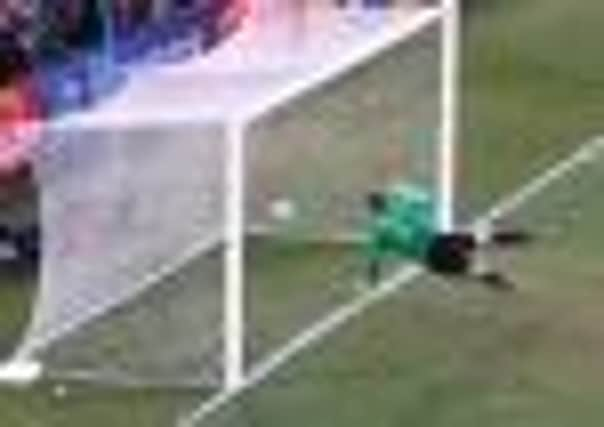SPL interested in using goal-line technology but not right away


But Regan believes that next season would be too early for an introduction of the technology. His comments came after the International FA Board (IFAB) approved goal-line technology in principle on Saturday.
Final tests on the two systems, one from British company HawkEye and GoalRef by a German-Danish firm, will now go ahead.
Advertisement
Hide AdAdvertisement
Hide AdThe SFA chief executive said: “Next season is probably too soon and the costs are unknown. I think over time technology will advance and prices ultimately will come down and there will come a point at which the SPL can enter this market.
“There is a demand for goal-line technology in the SPL, and once the companies have passed the tests we would certainly be keen to try it.”
A final decision will be taken by the IFAB in July, and even though the new season kicks off only weeks later, English Premier League sources say they will look at whether it could be possible to have a system in place.
If the time available is too short for the Premier League, the first introduction would probably be Fifa’s Club World Cup in Japan in December.
Football Association general secretary Alex Horne believes the Premier League would struggle to have a system put in place in time for next season. Horne said: “The reality is that asking 20 clubs to put something in place in five weeks, all tested and calibrated, is unlikely, and the Premier League would probably not want to introduce it midway through the competition.”
Hawk-Eye is a camera-based system while GoalRef uses a magnetic field around the goal with a special ball to identify a goal situation. GoalRef’s website highlights England’s controversial 1966 World Cup final goal against West Germany as the kind of decision it can get right.
The second test phase will take place between now and June to make sure each system is robust enough to remain accurate in a match situation.
The systems will only act as an aid to referees, with a signal sent to the official only within a second of the ball crossing the line. It is then up to the referee to decide whether to award a goal or not.
Advertisement
Hide AdAdvertisement
Hide AdThe IFAB will also push ahead with allowing Muslim women to wear headscarves, but a safe variety which comes off straight away if pulled. Fifa member Prince Ali of Jordan – supported by FA chairman David Bernstein – made a proposal to overturn the ban on the scarves, which had been taken on safety grounds, and the IFAB are likely to give it the final go-ahead in July.
Approval was also granted to the FA’s proposal to have a two-year experiment on rolling substitutes in amateur football. Fifa withdrew a proposal to allow a fourth substitute during extra-time and will consider whether players who are sent off for conceding a penalty should also get an automatic one-match ban.